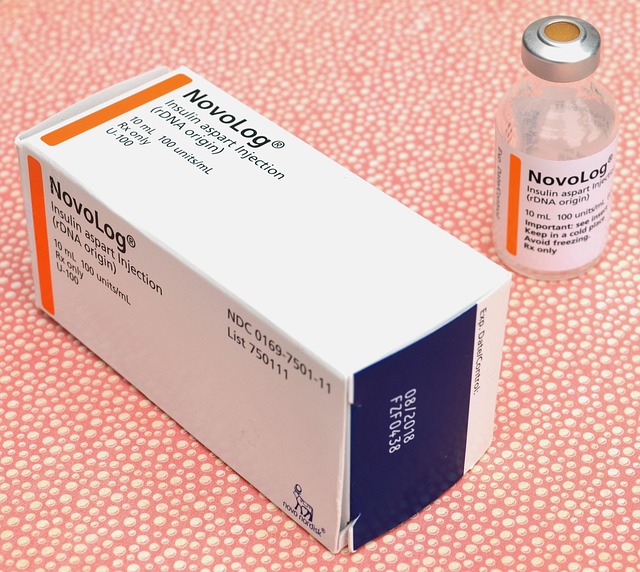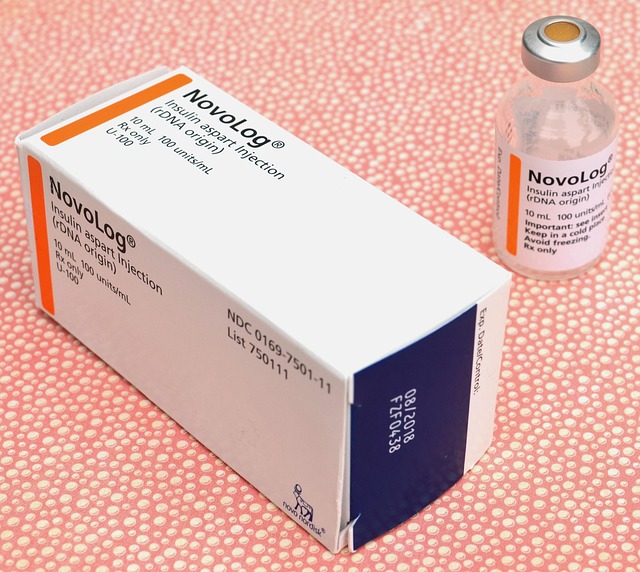Semaglutide is a powerful semaglutide diabetes treatment that mirrors the body's natural GLP-1 hormone. By stimulating insulin release and inhibiting glucagon secretion, it effectively lowers blood glucose levels in type 2 diabetes patients, outperforming traditional medications. Its once-weekly administration offers convenience. Clinical studies show significant HbA1c reduction, weight loss, improved insulin sensitivity, and better cardiovascular health. Semaglutide's multifaceted benefits enhance patient well-being, energy, and quality of life, making it a leading option in diabetes management.
Semaglutide, a groundbreaking diabetes-fighting hormone, offers more than just improved blood sugar control. This innovative medication has demonstrated long-term benefits for metabolic health, weight management, and cardiovascular risk reduction in those with type 2 diabetes. By mimicking the effects of a natural appetite-regulating hormone, semaglutide helps patients achieve better glycemic stability and enhances overall quality of life. Explore how this treatment redefines diabetes management and empowers individuals to take control of their health journey.
Understanding Semaglutide: A Diabetes-Fighting Hormone

Semaglutide is a hormone that plays a pivotal role in regulating blood sugar levels, making it a promising candidate for diabetes management. This natural substance mimics the effects of a key hormone produced by our bodies, GLP-1 (glucagon-like peptide-1), which stimulates insulin release and inhibits glucagon secretion. By mimicking this action, semaglutide helps to lower blood glucose levels in individuals with type 2 diabetes.
As a semaglutide diabetes treatment, it offers long-term benefits by improving overall glycemic control. Clinical studies have shown that semaglutide can lead to significant reductions in HbA1c (a marker of long-term blood sugar control) and help patients achieve their glucose targets more effectively than traditional medications. Furthermore, its once-weekly administration makes it a convenient option for patients, providing consistent management without the need for frequent injections.
How Semaglutide Improves Blood Sugar Control

Semaglutide, a novel glucose-dependent insulinotropic polypeptide (GIP) receptor agonist, has emerged as a powerful tool in diabetes management. Its primary mechanism involves enhancing insulin secretion in a glucose-dependent manner, thereby promoting better blood sugar control. By mimicking the natural effects of GIP, semaglutide helps stimulate insulin release from beta cells when blood glucose levels are high, facilitating efficient glucose uptake by cells and reducing excessive sugar in the bloodstream.
In the context of semaglutide diabetes treatment, this mode of action translates to significantly improved glycemic control. Clinical trials have shown that semaglutide can lead to substantial reductions in HbA1c (a marker of long-term blood glucose control) compared to placebo or other standard diabetes medications. Its ability to lower blood sugar levels while minimizing the risk of hypoglycemia makes it an attractive option for patients, offering a more balanced and effective approach to managing this chronic condition.
Long-term Effects on Metabolic Health

Semaglutide, as a novel diabetes treatment, has shown remarkable long-term effects on metabolic health. Studies have demonstrated that continuous administration of this drug can lead to significant and sustained improvements in various metabolic parameters. One of the key benefits is its ability to reduce body weight, which is crucial for managing type 2 diabetes effectively. By enhancing insulin sensitivity and regulating glucagon secretion, semaglutide promotes better blood sugar control, thereby reducing the risk of long-term diabetic complications.
Additionally, this medication has been linked to positive changes in lipid profiles, including decreased low-density lipoprotein (LDL) cholesterol levels, often referred to as ‘bad’ cholesterol. These improvements contribute to a healthier cardiovascular system, which is especially significant for diabetics, who are at a higher risk of heart disease and stroke. The long-term benefits of semaglutide in metabolic health highlight its potential role in preventing and managing diabetes-related complications.
Weight Management and Semaglutide: Beyond Blood Sugar

Weight management is a significant aspect of diabetes control, and semaglutide has proven to be a valuable tool in this regard. Beyond its role in lowering blood sugar levels, semaglutide diabetes treatment offers substantial long-term benefits for weight loss and maintenance. Studies have consistently shown that semaglutide can help individuals with type 2 diabetes achieve significant and sustainable weight reductions.
This effect is largely attributed to the medication’s unique mechanism of action, which includes increasing feelings of fullness and reducing appetite. By mimicking the effects of a natural hormone that regulates hunger, semaglutide helps people eat less without significantly impacting their quality of life. As a result, many patients on semaglutide diabetes treatment report improved overall dietary habits and an enhanced sense of control over their eating behaviors, contributing to better blood sugar management and cardiovascular health in the long term.
Reduced Cardiovascular Risk: A Silent Benefit

Semaglutide, a novel glucose-lowering medication, offers more than just improved blood sugar control for individuals with diabetes. One of its most significant long-term benefits is the reduction of cardiovascular risk—a silent yet critical aspect of diabetes management. This powerful effect is particularly notable in type 2 diabetes patients, who are at a higher risk of developing heart disease and stroke.
Research suggests that semaglutide can help prevent or delay the progression of cardiovascular complications by improving various metabolic markers. It promotes weight loss, reduces blood pressure, and lowers bad cholesterol levels—all factors contributing to a healthier heart. This dual action of managing diabetes and mitigating cardiovascular risk makes semaglutide an attractive option in the diabetes treatment arsenal, providing patients with a comprehensive approach to long-term health.
Patient Experiences and Quality of Life Enhancements

Many patients with type 2 diabetes report significant improvements in their overall well-being and quality of life after incorporating semaglutide into their diabetes management regimen. Semaglutide diabetes treatment offers more than just blood sugar control; it can lead to substantial patient experiences, including improved energy levels, reduced hunger, and a greater sense of control over their condition.
The enhanced quality of life associated with semaglutide is multifaceted. Better glycemic control often translates into fewer diabetes-related complications, allowing patients to participate more actively in daily activities and hobbies. Additionally, the weight management benefits of semaglutide can alleviate the physical and emotional burdens often linked to obesity, further enriching patients’ lives and fostering a greater sense of confidence and overall happiness.
